But grow in the grace and knowledge of our Lord and Savior Jesus Christ.
2 Peter 3:18
Here is one of the worst-kept secrets and, in my opinion, one of the most glaring deficiencies in the modern biblical counseling movement: the requirement of continuing education for certified biblical counselors is practically non-existent.
This observation is made without rancor, and this article should not be understood as an attack on any of the many wonderful biblical counseling-related organizations that offer some sort of certification. No, this article is an observation. But more than pointing out the obvious, it is an attempt to provide the kind of help that will begin a network-wide conversation about—and perhaps some progress towards—this very important issue.
Biblical Counseling Certification as Quality Control
The Association of Certified Biblical Counselors (ACBC), the largest and most widely known of the biblical counseling certifying organizations, began in 1976 (as NANC) as a way to identify and quantify the beliefs and practices of those who read and agreed with the basic argument elucidated in Jay Adams’ earliest books—that people-helping should be done based on biblical, not psychological, principles. Certification helped provide one answer to the question, “What is a biblical counselor?”
In explaining this concept in places overseas I often use the analogy of McDonald’s. If you buy a McDonald’s hamburger in Moscow, then buy a McDonald’s hamburger in Tokyo, then buy a McDonald’s hamburger in El Salvador, then buy a Macca’s (that’s what they call it) hamburger in Australia, you’ll notice this: while those hamburgers are never very good (in my opinion) they are remarkably the same. Quality control is vital to brand protection.
Beyond providing specificity, uniformity, and coordination to the definition of a biblical counselor, certification provides the counselor with the imprimatur of a reputable, national organization, thereby providing confidence to those being counseled. The discipline of the process of obtaining certification provides personal spiritual growth for the aspiring biblical counselor. The searchable databases of competent and compassionate biblical counselors maintained by certifying organizations provide a helpful resource for those looking for truly biblical counseling and for those looking for a church that is focused on biblical sufficiency and discipleship.
The (Mostly) Missing Element in Biblical Counseling Certification – Continuing Education
The ACBC website, in a preface to introducing that school teachers may receive Continuing Education Units (CEUs) through its training that are recognized by ACSI, contains this observation:
“Certain professions require employees to continue learning each year in the field of their work. CEUs are required as proof that they have obtained those credit hours from an accredited organization.”
That is correct. But, what is true in fields like education, medicine, law, engineering, and others—that to maintain the privilege of serving people in those roles one must demonstrate that they have stayed current with the maturing philosophy and practices in their field through mandatory continuing education—has not been true in the field of soul care.
In fact, it remains true today that if a person was certified by NANC in 1976 and has dutifully signed the required statements and sent the required fee every year since, that person would be an ACBC certified biblical counselor today (I confirmed this fact both personally with the previous Executive Coordinator of ACBC and publicly in the meeting of ACBC Fellows in October of 2017). Would that be true if that person had not attended a NANC/ACBC Annual Conference for the last 40 years, had not counseled anyone, had not read a biblical counseling-related book, and had not taught a class or seminar in the field? Sadly, yes.
What Continuing Education Exists Today?
Not too much—and not nearly enough continuing education currently exists.
It is commendable that ABC requires 5 CEUs/year for ABC3 (Advanced) Certification. They have published a list of books and conferences that qualify. ABC3 counselors must submit documentation for 5 CEUs per year to ABC staff, who track continuing education requirements. Counselors who fail to submit 5 CEUs are marked as inactive until they meet the requirement for continuing education. Kudos!
While I’m open to correction on this fact—and I actually hope that someone will correct me—I cannot find any other biblical counseling organization that has a continuing education requirement necessary to maintain its certification.
Expected Results of a Continuing Education Requirement for Maintaining Biblical Counseling Certification
Simply put, in requiring continuing education within biblical counseling organizations, counselor quality would increase while the number of certified counselors would likely decrease.
A system of required continuing education would cause certified biblical counselors to be regularly engaged in the field of personal soul care. Reading recently-published books, reviewing articles and compendia that detail “best practices,” being exposed to the thinking of those in various academic institutions and para-church organizations, discovering new counseling approaches, and studying issues of emerging importance in the biblical counseling movement are all activities that would strengthen any certified biblical counselor.
However, not every certified biblical counselor will engage in the required continuing education protocol. What then? Will the certifying body enact a probationary period that allows a counselor to return to certification compliance? Will the certifying organization withdraw certification from members who are found to be out of compliance after the probationary period? If so, is the certifying organization willing to experience the expected decrease in number of certified members and face the damage the “brand” (the image) of the organization might sustain? And would the loss of the fees paid by certified members limit or damage the ability of the certifying organization to fulfill its mission?
Next: A Suggested Plan
Biblical Soul Care Philippines, one of the biblical counseling certification organizations created through the work of Overseas Instruction in Counseling, in fulfillment of its strategic objective, has created and is enacting a comprehensive plan for continuing education for its certified biblical counselors. That plan will be explained in Part Two of this article.
Questions for Reflection
What are some other reasons you think biblical counseling certification is important? Do you think that continuing education should be a requirement to maintain biblical counseling certification? Why do you think that continuing education for certified biblical counselors has been largely absent?


